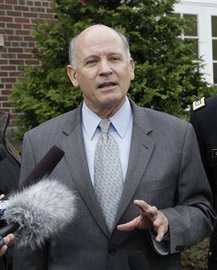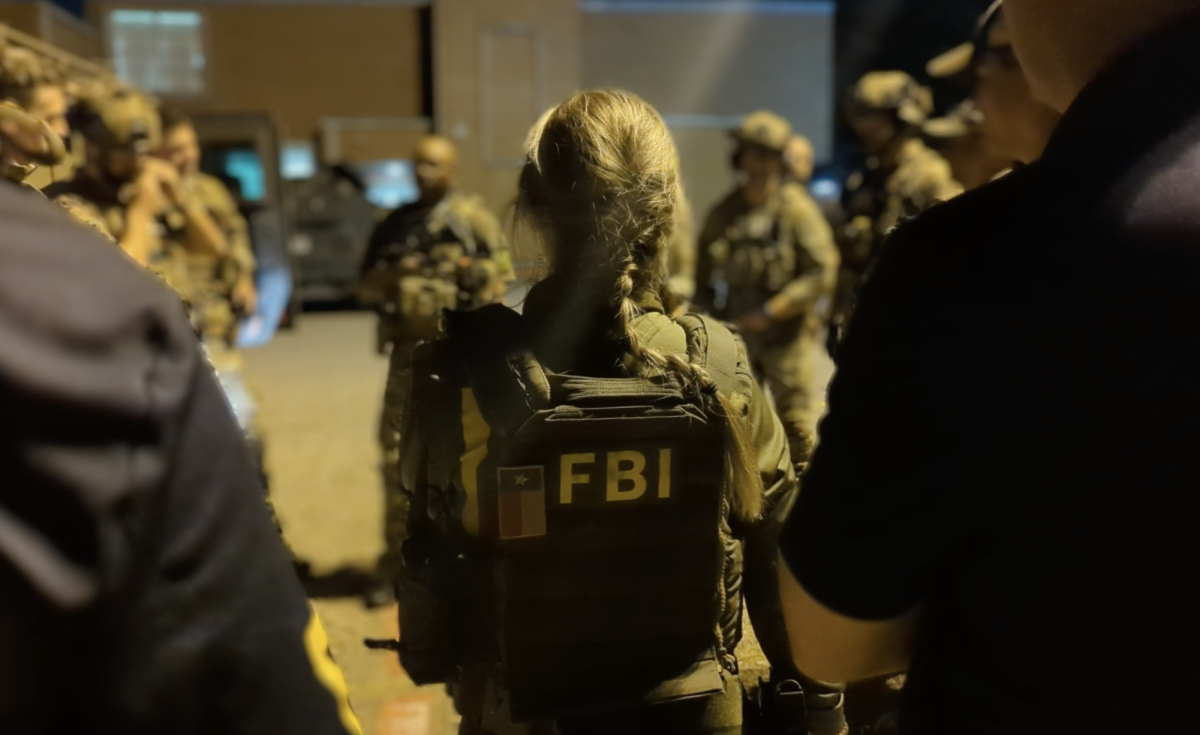For 40 years, United States Air Force veteran Frank Spinner has exclusively practiced military law, representing every rank from private to general in several high profile cases.
Spinner served as the defense lawyer for U.S Army Specialist Jeremy Morlock, who was accused of premeditated murder against Afghan civilians. While on this case, he met Texas A&M sociology professor Stjepan Meštrović, who was serving as an expert witness, and now teaches a course on war crimes.
“It became a partnership. We were educating each other,” Spinner said about working with Meštrović.
Meštrović said that they very quickly established a rapport, and worked well together.
“We would translate things to each other. He would tell me the legalise, and I would handle the sociology,” Meštrović said.
Spinner said that working with Meštrović not only helped his defense, but that the relationship they formed lasted beyond the courtroom.
“I felt prepared for what we had to do,” Spinner said. “We’ve not only had that professional relationship, but a friendship as well.”
Meštrović invited Spinner to speak to his war crimes class on March 30. Spinner spoke about the relevant cases, and took questions from the class.
Spinner began his speech by saying why he stayed in military law for so long.
“This has been my life. I have defended generals, done capital murder cases, war crimes cases, sexual assault cases — I’ve seen the whole range of military justice,” Spinner said. “I have a passion for defending military members. But I also believe in justice. I determined early on in my career that there are weaknesses in the military justice system.”
Spinner said that he defends military personnel because they often have no say in the actions they are told to commit.
“My passion is to defend our men and women who had no choice. The choice they made was they signed up. The military tells you where to go, when to be there, and if you violate those, you will be prosecuted,” Spinner said.
When asked why he only does defense, Spinner said that he believes in the constitution and the right to a defense.
“The problem is, when you get hired to defend someone charged of crime, you don’t know if they’re guilty,” Spinner said. “The guilty ones will lie to you, so I assume, like the law, that they are innocent. I do believe that there are innocent people that are innocent. But I also believe in the constitution. The burden of proof is on the prosecution. The downside of being a criminal defense lawyer is taking on difficult cases. I had a case where my client was charged with murdering an Air Force captain and his daughters. It rips your heart out. At the end of the day, I believe in the Constitution. I believe in the rule of law. I believe every person in America should get the best possible defense they can.”
Spinner said that, ultimately, his passion for defending military personnel comes down to their service.
“That’s why I do what I do,” Spinner said. “When I see guys risk their lives to save the lives of innocent people, that’s just one of the most amazing things I’ve seen. I feel very honored to do this. I’ve defended generals, colonels, West Point grads, Naval Academy grads, some of the highest officers. I know that the system can turn on you at any point.”
Sociology senior Crystalann McAnally said he appreciated the opportunity to see these topics from Spinner’s perspective.
“I feel like his insight from a legal point of view, instead of the sociological point of view that we’ve been getting all semester was great,” McAnally said. “Some of the insight he had about the constitution was really helpful in understanding the cases.”
History junior and former U.S. Marine Mark Bratton said that while he enjoyed the speech, it also provided a deeper legal understanding of his military service.
“My biggest takeaway was the legal aspect of how service members are being treated,” Bratton said. “Being a veteran, it brings a better understanding of why I got out of the military.”
Bratton said his military experience gave him a different perspective on the speech than his classmates.
“One of the reasons I got out of the military is because service members are being investigated for war crimes for just doing their jobs,” Bratton said. “It brings a better aspect as to why these things are crimes. Its very good to have a legal side, to have a class that looks at war crimes from a sociological perspective. But having a legal side gives a full scope of it.”
History senior Jasmina Merdzo said it was reassuring that problems she had with the justice system were shared by Spinner.
“The things that he believes should be changed aren’t different from how we as civilians see it, so that a lawyer sees these faults in the Army is reassuring,” Amedzro said. “It was also good that he focuses on the good in the accused, not just the bad.”
A&M sociology professor hosts military lawyer for class discussion
March 30, 2017

Photo by Courtesy
Frank Spinner
0
Donate to The Battalion
$0
$5000
Contributed
Our Goal
Your donation will support the student journalists of Texas A&M University - College Station. Your contribution will allow us to purchase equipment and cover our annual website hosting costs, in addition to paying freelance staffers for their work, travel costs for coverage and more!
More to Discover








